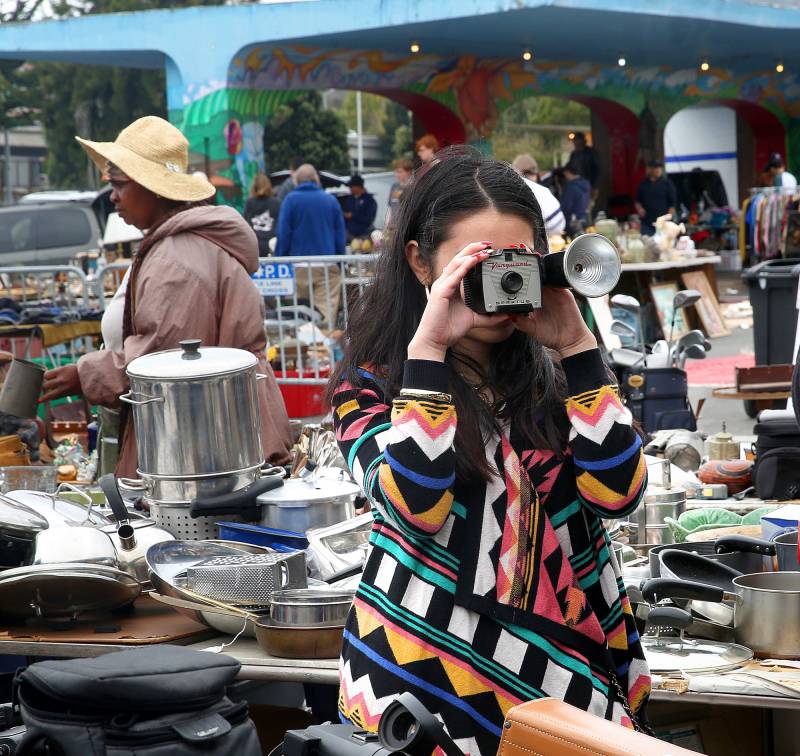Update, 10:00 a.m. Saturday: Supervisor Hillary Ronen announced on social media that the Alemany Flea Market will not be cut from the city budget for at least the next year. “Thank you to the outpouring of community members who spoke up to defend the market,” she wrote. “Your advocacy made a difference!”
Original story, 12:38 p.m. Friday: Vendors at San Francisco’s Alemany Flea Market and their loyal customers are rallying to save the weekly event at 100 Alemany Blvd., which is in danger of being eliminated by upcoming city budget cuts.
After a week of emails and phone calls to supervisors and city representatives, it seems the flea market’s supporters have made an impact. The City Administrator’s Office provided a statement to KQED that it is “working with the Mayor’s Office to maintain funding, including long term solutions, for the Flea Market.”
The City Administrator’s Office stated that the flea market has been “operating at a deficit for some time.” City departments have been tasked by Mayor London Breed with cutting 10% of their general operating expenses to help close an $800 million deficit over the next two years.
Rico Duenas, a regular flea market attendee who grew up going every Sunday with his family, was shocked to learn, only through word of mouth, that the event might be eliminated from the city’s budget. “I don’t understand how it could have just ended,” he said. “No one would have said anything, and it just would be gone one day, which is crazy to me.”


